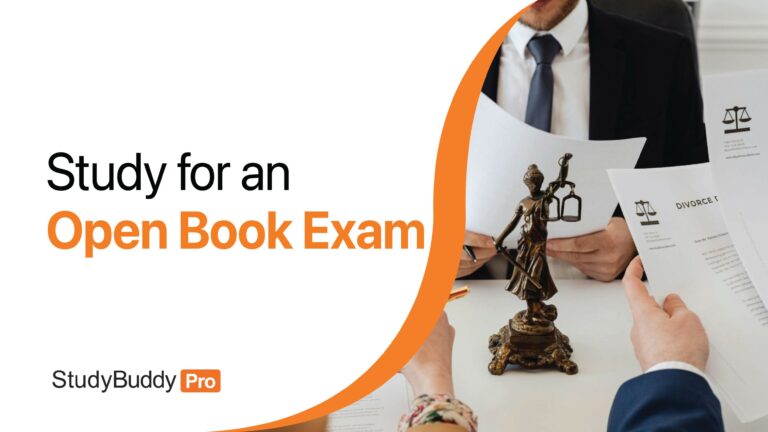How Does AI Grading Work?
Table of Contents
The most common question that many professors ask is “How Does an AI Grader Work?” Well to answer this question you have to understand AI grading tools and their functions.
Every AI grading tool uses the power of AI algorithms to assess the student’s schoolwork. They have totally changed the modern education system and teachers’ approach to the education system. AI grading tools make it possible for teachers to quickly and accurately grade the student’s works. Let’s see how.
What is AI Grading for Law Professors?
AI grading tools for law professors use AI (Artificial Intelligence) to automatically assess and score students’ assessments. These tools use different key technologies for AI grading and can assess different types of student work, including issue-spotter essays and multiple-choice tests.

Key Technologies in AI Grading Tools
Here are some key technologies that are used in AI grading tools:
Natural Language Processing (NLP)
The Natural Language Processing (NLP) algorithm works by analyzing the text written by students and examining the text’s grammar, syntax, and semantics. The AI tools understand the content and evaluate the meaning and context of the text to make sure it follows the assignment requirements.
Educators can use this tool to check the grammatical accuracy, logical flow, and coherence of students’ arguments in their writing. They can also identify whether students have correctly analyzed the elements of legal writing.
Machine Learning
Machine learning uses training data, pattern recognition, and grade assessment to assess essays. Every AI model is trained by using a large set of data that was previously used in grading assignments. Tools are engineered for pattern recognition to learn grading criteria and patterns from human grading work.
To provide grades, the trained models apply all the learned patterns to every new assignment. Professors can rely on machine learning models to train the tool on hundreds of graded essays to differentiate between high- and low-quality submissions. This allows the model to grade the newly written essays accurately based on learned patterns.
Automated Essay Scoring (AES)
Automated Essay Scoring (AES) tools use benchmark comparison and scoring criteria in the AI grading process. All AES tools grade student essays by comparing them with a set of benchmark essays that have already been graded by experts. The scoring criteria of the essays are based on the language use, content, organization, and mechanics.
Deep Learning
Deep learning models use neural networks and advanced understanding to grade the work that is written by the students. It works by using neural networks with multiple layers to analyze the complicated data. These models are quite efficient and can easily understand and evaluate delicate details in student work including tone, style, and creativity. A law professor can use this model to grade student assessments. They can find any problematic detail in student answers that classic AI models might skip.

Understanding the Working of AI Essay Graders
Every AI grading tool utilizes powerful algorithms to grade essays. They use natural language processing to assess the essay on content, structure, and the language that is used. The AI essay grader system evaluates coherence, grammar, adherence to the prompt, and spelling by comparing submissions with high-quality model responses. Law professors can use this cutting-edge technology to save hours of grading time. This will also allow them to put more focus on providing personalized feedback and increase student interactions.
Benefits of AI Graders for Law Professors
There are a plethora of benefits to using AI graders for grading essays. Here are the most common ones:
- Using AI graders allows law professors to reduce their workload. They don’t have to spend endless hours on grading as AI can automate these tasks allowing them to focus on what they love more which is teaching.
- AI graders are consistent and provide an unbiased evaluation. These tools ensure that every student gets a fair essay grade assessment.
- AI graders eliminate almost every error that can occur. Using AI graders allows professors to correct discrepancies between human grading mistakes, detect potential unethical grading practices, and eliminate most potential errors.
- AI graders provide immediate feedback, which allows students to correct their mistakes, learn, and adapt to situations more quickly. The feedback also allows the students to improve their writing skills.
- Enhanced analytical tools allow professors to monitor each student’s performance and progress, which will help them improve their teaching strategies.
Final Words
AI graders revolutionize the grading process for law professors, offering numerous benefits. By leveraging advanced technologies like natural language processing, machine learning, automated essay scoring, and deep learning, these tools accurately and consistently assess student work. They save professors significant time and reduce their workload, allowing them to focus more on teaching.
AI graders provide unbiased evaluations and immediate feedback, helping students quickly improve their writing skills. Additionally, enhanced analytical tools enable professors to monitor student performance and adapt their teaching strategies effectively. AI graders streamline the grading process, ensuring fairness and efficiency in academic evaluations.
Key Takeaways:
- AI Grader Enhances Efficiency: AI Grading utilizes advanced algorithms like NLP, machine learning, and deep learning to assess student assessments accurately and consistently, reducing professors’ grading time.
- Natural Language Processing (NLP) in AI Grading: NLP algorithms analyze text for grammar, syntax, and semantics, ensuring students’ essays meet assignment requirements and improving grammatical accuracy.
- Machine Learning’s Role in AI Grading: Machine learning models use training data and pattern recognition to differentiate between high-and low-quality submissions, allowing for accurate and fair grading of new essays.
- Automated Essay Scoring (AES) Benefits: AES tools compare student essays with expert-graded benchmarks, helping professors ensure that essays meet essential requirements and standards in content, organization, and mechanics.
- Deep Learning’s Advanced Capabilities: Deep learning models, with their neural networks, efficiently analyze complex data in student work, including tone, style, and creativity, providing detailed and nuanced evaluations.



